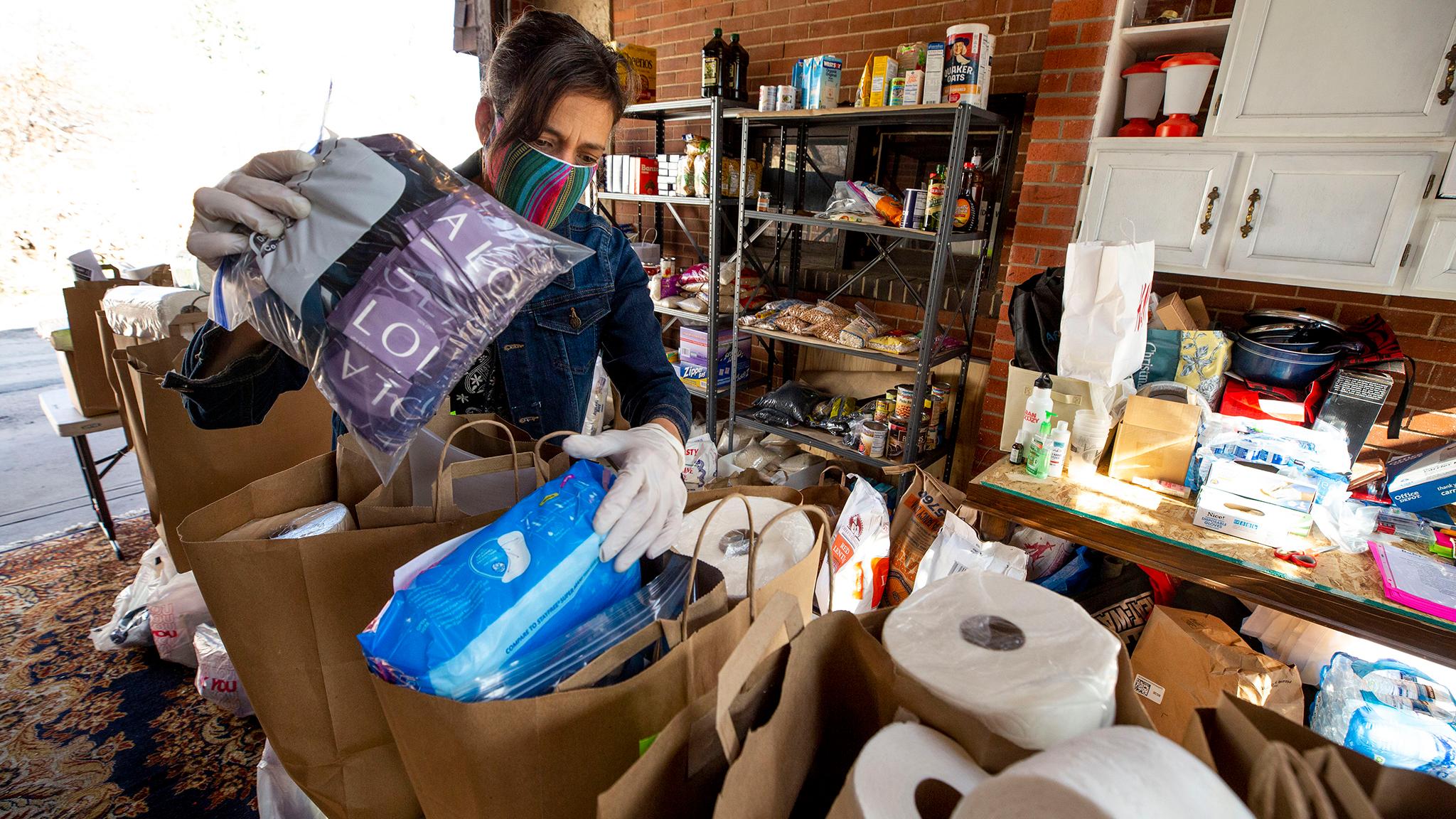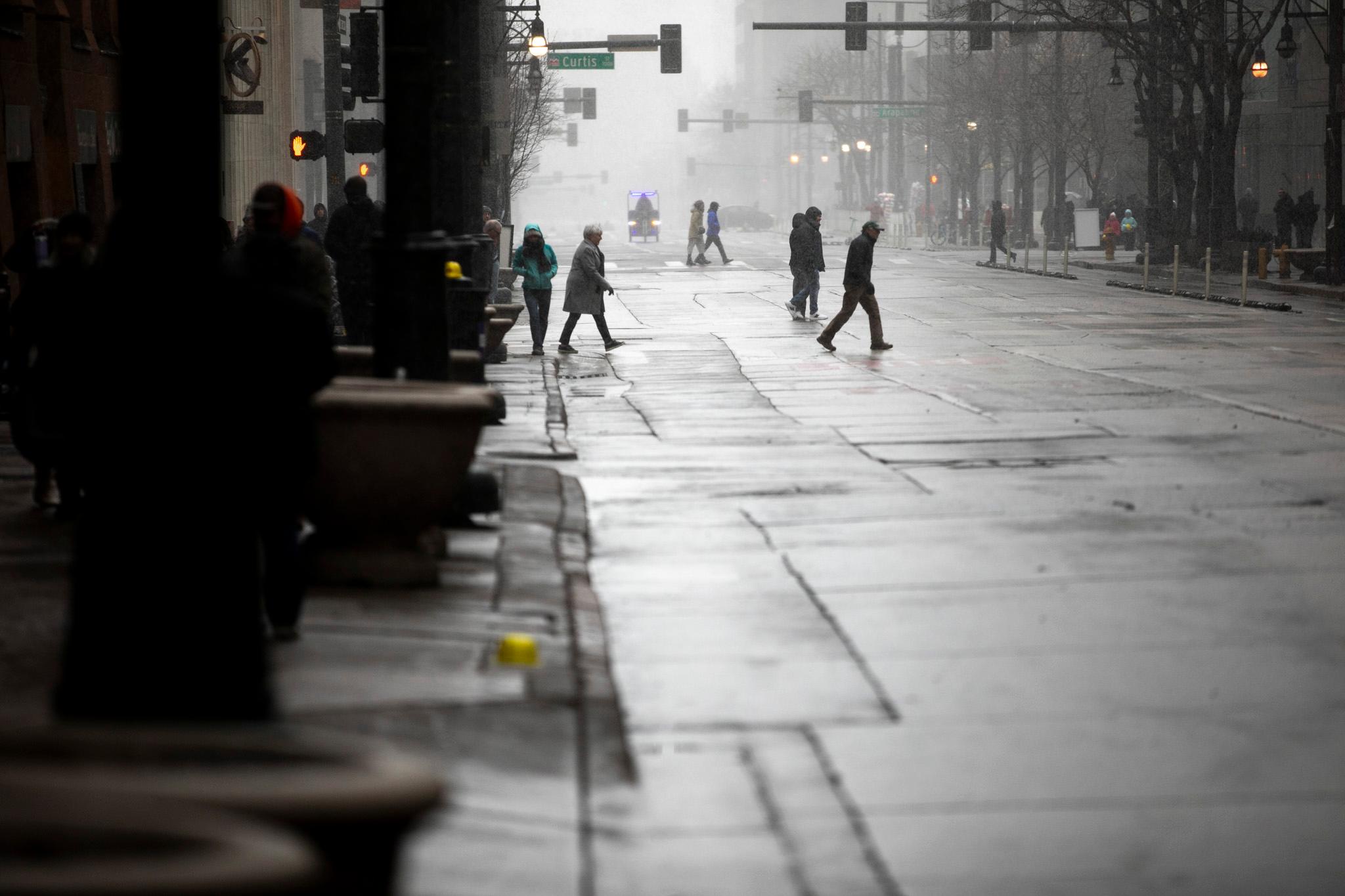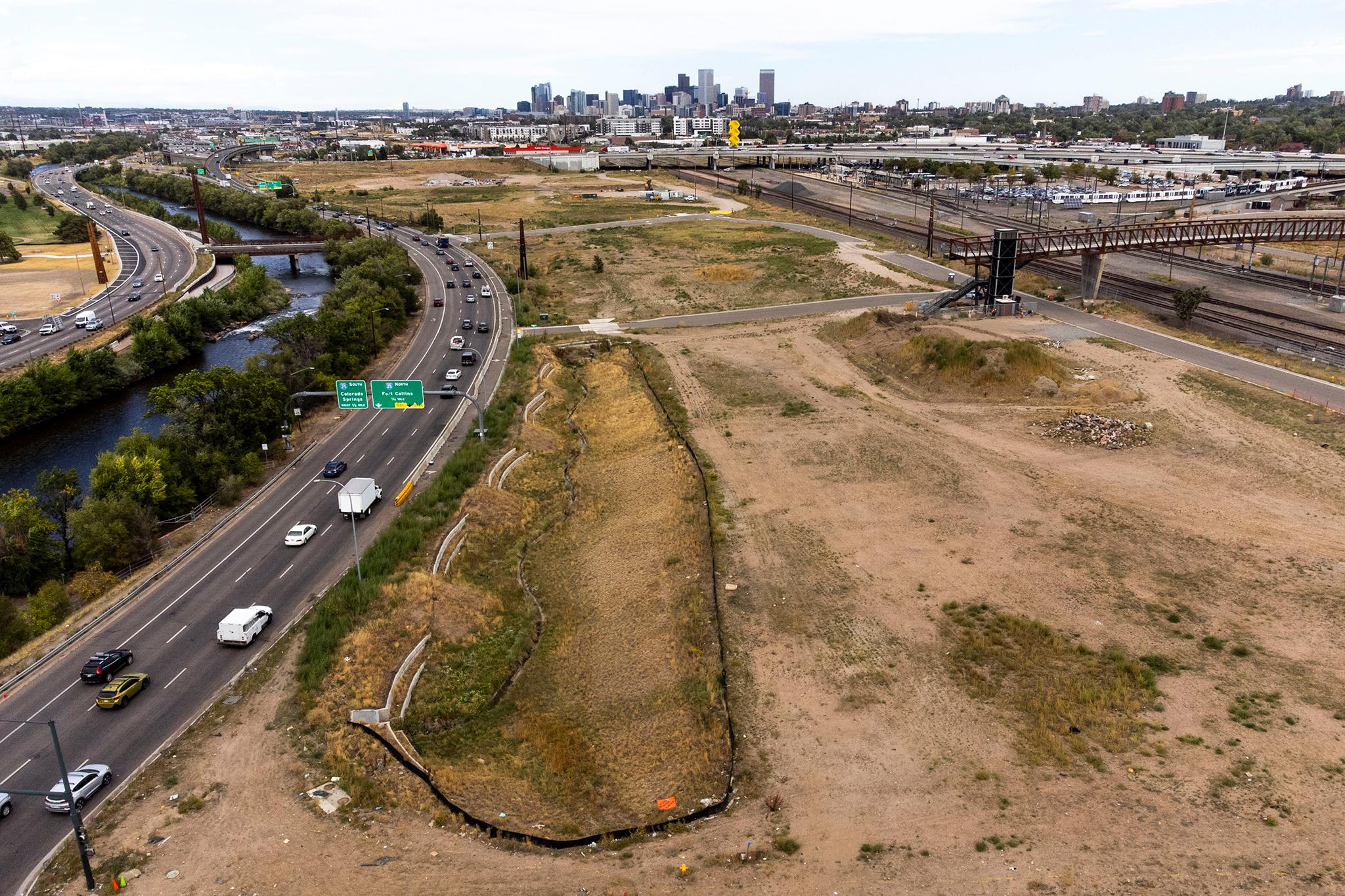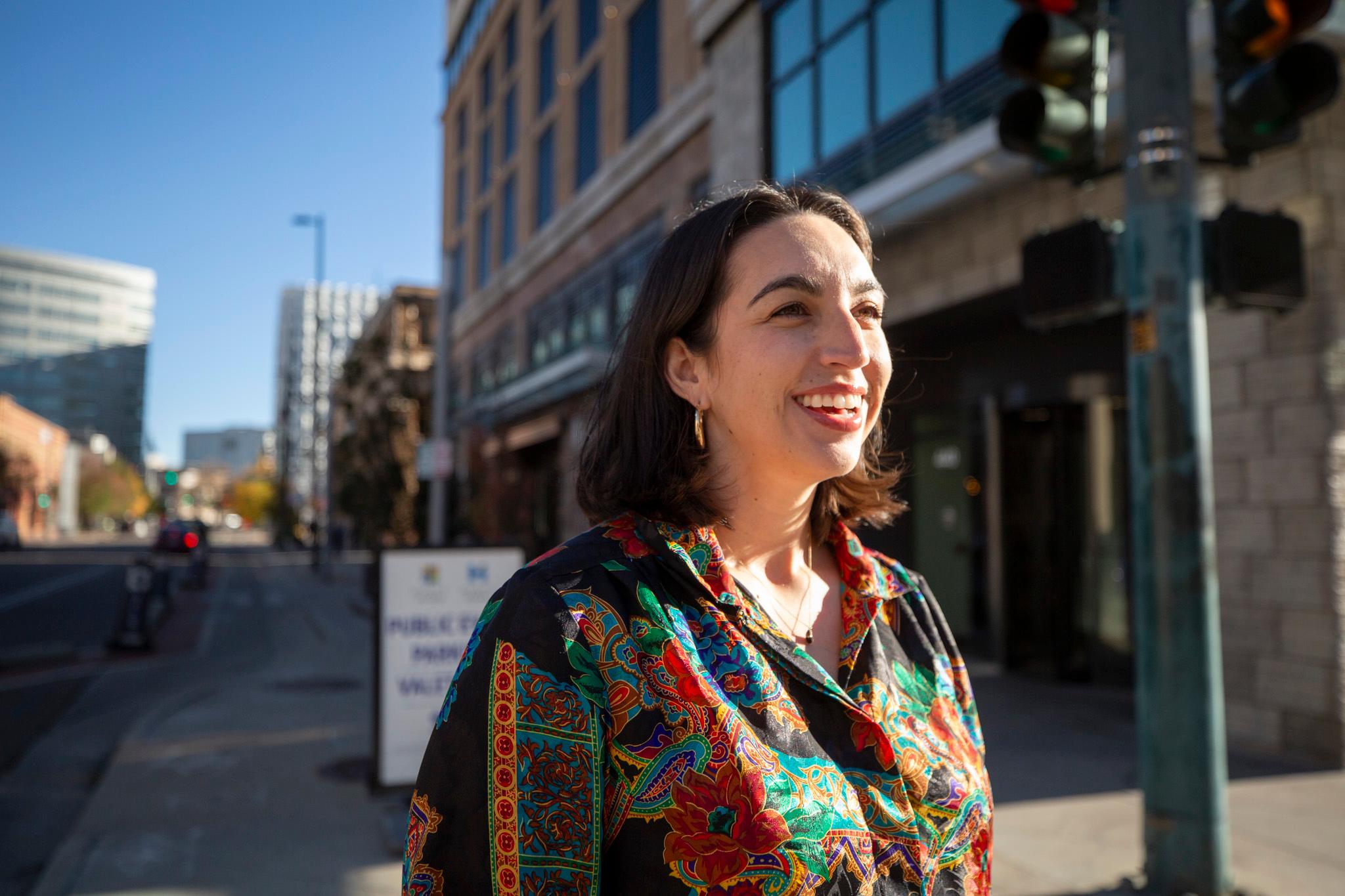By Daliah Singer
Michelle Lasnier was excited about the prospect of finally opening Ruby's Market in Platt Park. The artisan bazaar, which was slated to open at the end of March, would sell handcrafted goods, art, and food from members of the local refugee and immigrant community. But before Lasnier could officially unlock Ruby's front doors, COVID-19 halted commerce across the city.
The very vendors she was partnering with were suddenly out of work, unsure of how they would continue to support their families. Lasnier responded by transforming Ruby's garage (the market is located in a converted house) into an emergency supply pantry.
"One thing I have right now is space," Lasnier said. "I care about this community. I can deal with logistics. So I thought I'd just offer."
Lasnier is a longtime volunteer with the African Community Center; Ruby's Market grew from a market booth she ran for the organization. (She also founded R Bazaar three years ago, a mobile market that traveled to venues and events around the city.)
To transform Ruby's Market into an emergency pantry, she teamed up with the ACC, Lutheran Family Services Denver, and a group of volunteers to get much-needed supplies to the community. Over the past two weeks, Ruby's Market has delivered care packages filled with shelf-stable food, toiletries, and cleaning supplies to 75 families in the metro area. Whenever possible, Lasnier tries to include foods that are culturally appropriate, including items like rice, dried lentils, and dried beans; she said refugee families prefer these staples to canned items. "I'm able to tailor it to what foods they might (prefer)," she said.
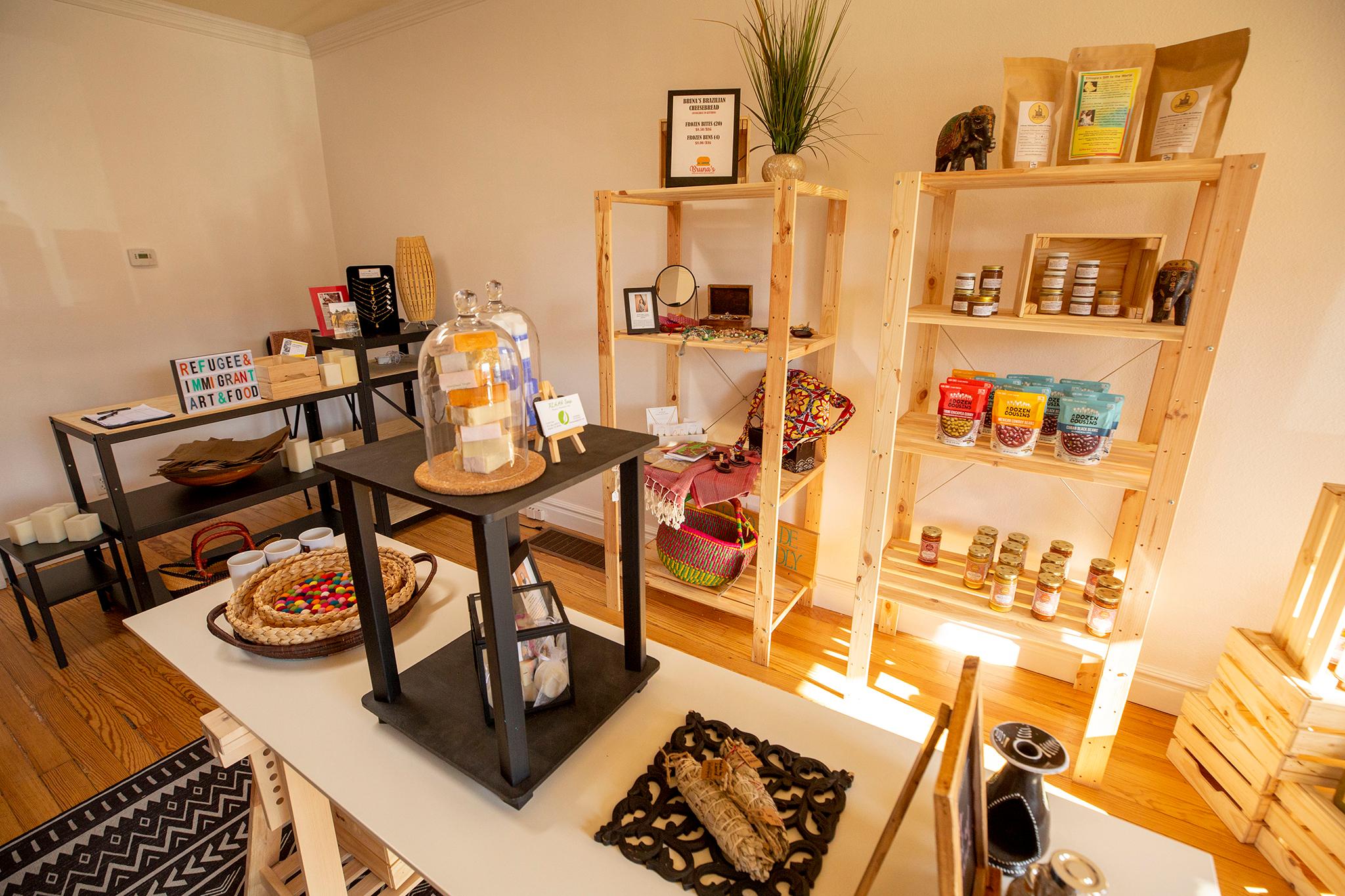
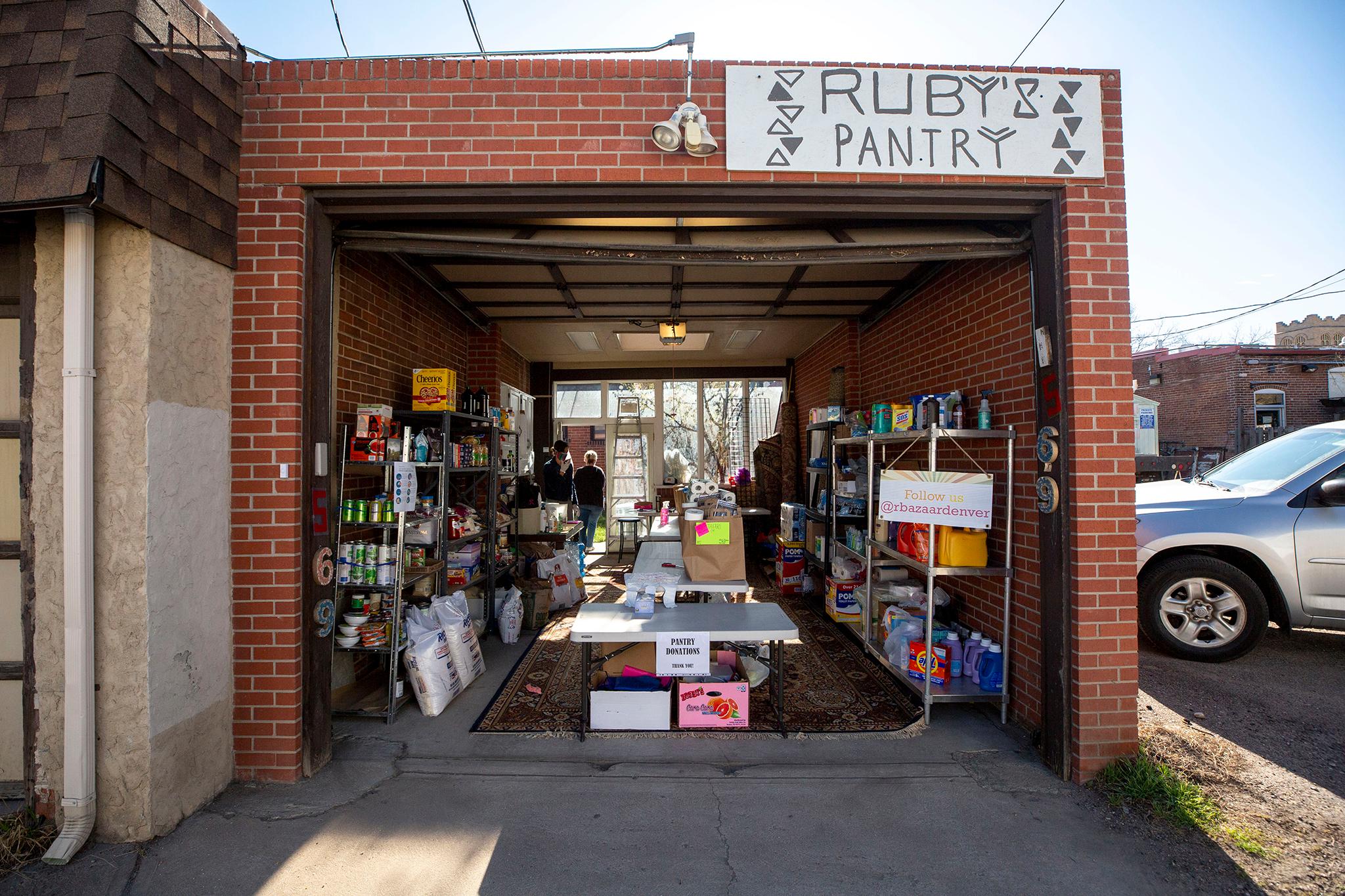
The need has been so great that in a single week, Lasnier completely emptied her stock and had to refill the garage pantry with supplies three separate times.
Refugees and immigrants are particularly vulnerable to the current economic downturn because they're often employed in hard-hit industries like hospitality, food services, and manufacturing.
Mohammad, who asked that we only use his first name, was working in the housekeeping department at a Denver Tech Center hotel before he was laid off in mid-March. Around the same time, his wife lost her job at Goodwill, and his 19-year-old son was laid off from his airport gig. The couple have four younger children as well.
Mohammad -- who arrived in Colorado from Afghanistan four years ago -- has received two deliveries from Ruby's Market. With such a big family, food like oil, flour, and potatoes didn't last long. But, the 47-year-old said via a translator, "Food is not the number one concern." More useful was the toothpaste, dishwashing soap, and detergent, since household items aren't covered by food stamps. (Those who are eligible for food stamps are currently receiving the maximum benefit amounts, so Mohammad's family is able to purchase enough food to keep them nourished.)
Refugee agencies are closed to in-person visits, making it more difficult to access services.
By partnering with Ruby's Market, local organizations can get supplies to their clients relatively quickly. The agencies provide Lasnier with a list of people in need, how many individuals are in the family, and what language they speak. Each package also contains fact sheets on other nearby food pantries and CDC health guidelines in the appropriate language.
Volunteers bring the supplies directly to each family; they call when they arrive and leave the packages outside their front doors. The refugee groups are also coordinating with other organizations to gather perishable foods that the volunteers pick up and drop off as well.
Barbara Guglielminotti drives around delivering care packages to families like Mohammad's twice a week, visiting between six and eight households each day. "I talk to them, (ask) them if everything is OK. I let them know what I'm delivering and see if they may have any extra needs," she said. "They are extremely appreciative. It certainly gives them hope to see people haven't forgotten about them." Though she said the community as a whole is resilient, the list of people needing help "is getting longer and longer."
Mohammad said his "mind is at ease" right now because his first unemployment check recently arrived, and he expects his wife's and son's to come soon. Combined with the government's stimulus relief money, he thinks they can stretch their resources and at least cover their rent for another couple of months. But if the stay-at-home orders continue beyond that, they "are in big trouble," he said. Other expenses, like car insurance and phone bills, are piling up. He has a job to return to if the hotel reopens before September, he said, but his wife and son are "clueless" about their employment status. He hopes the government help is not a one-time thing, as he knows he'll need more aid soon. In the meantime, the donations from Ruby's Market help bridge gaps for his family and others he knows who are in similar situations.
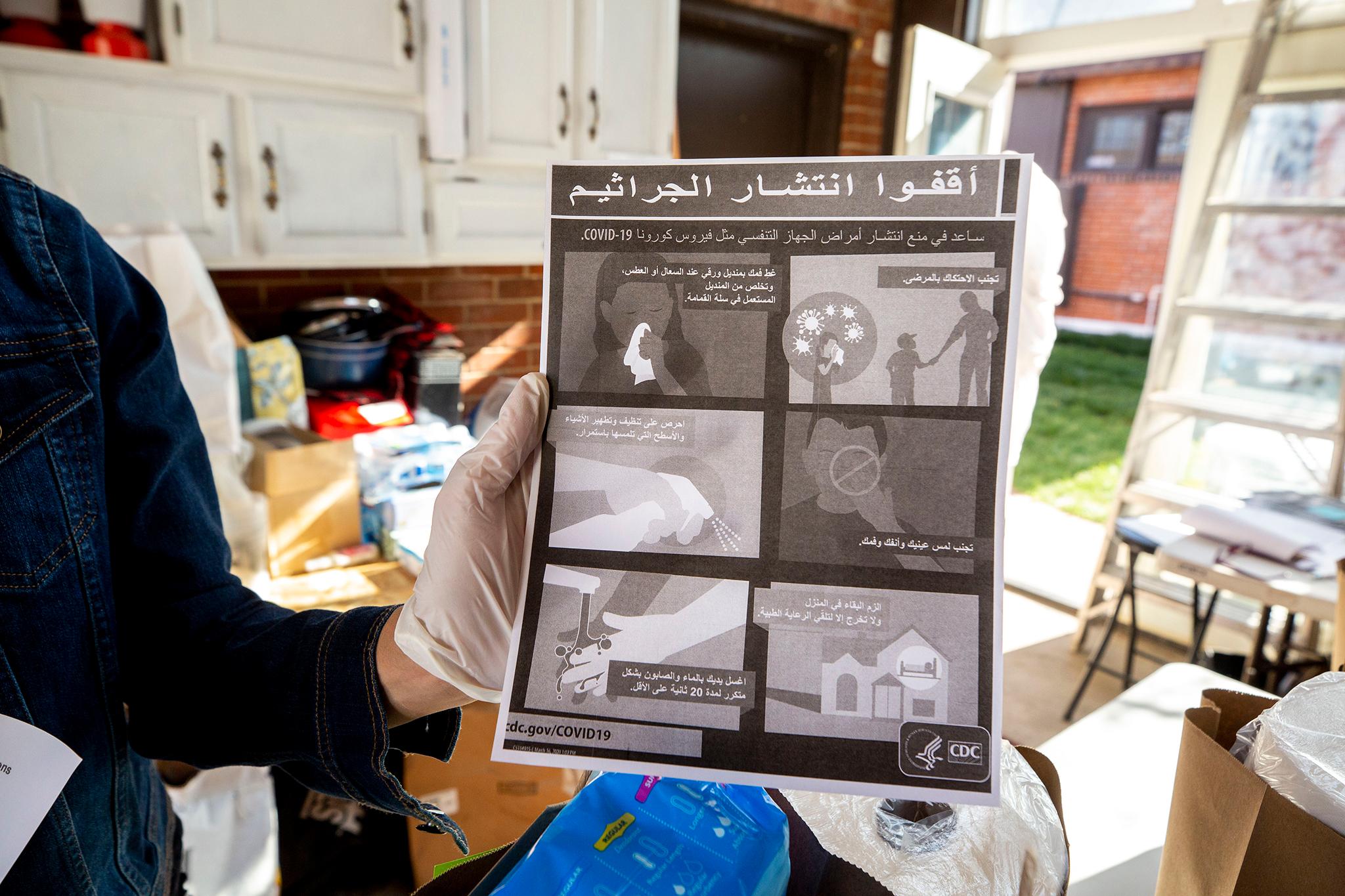
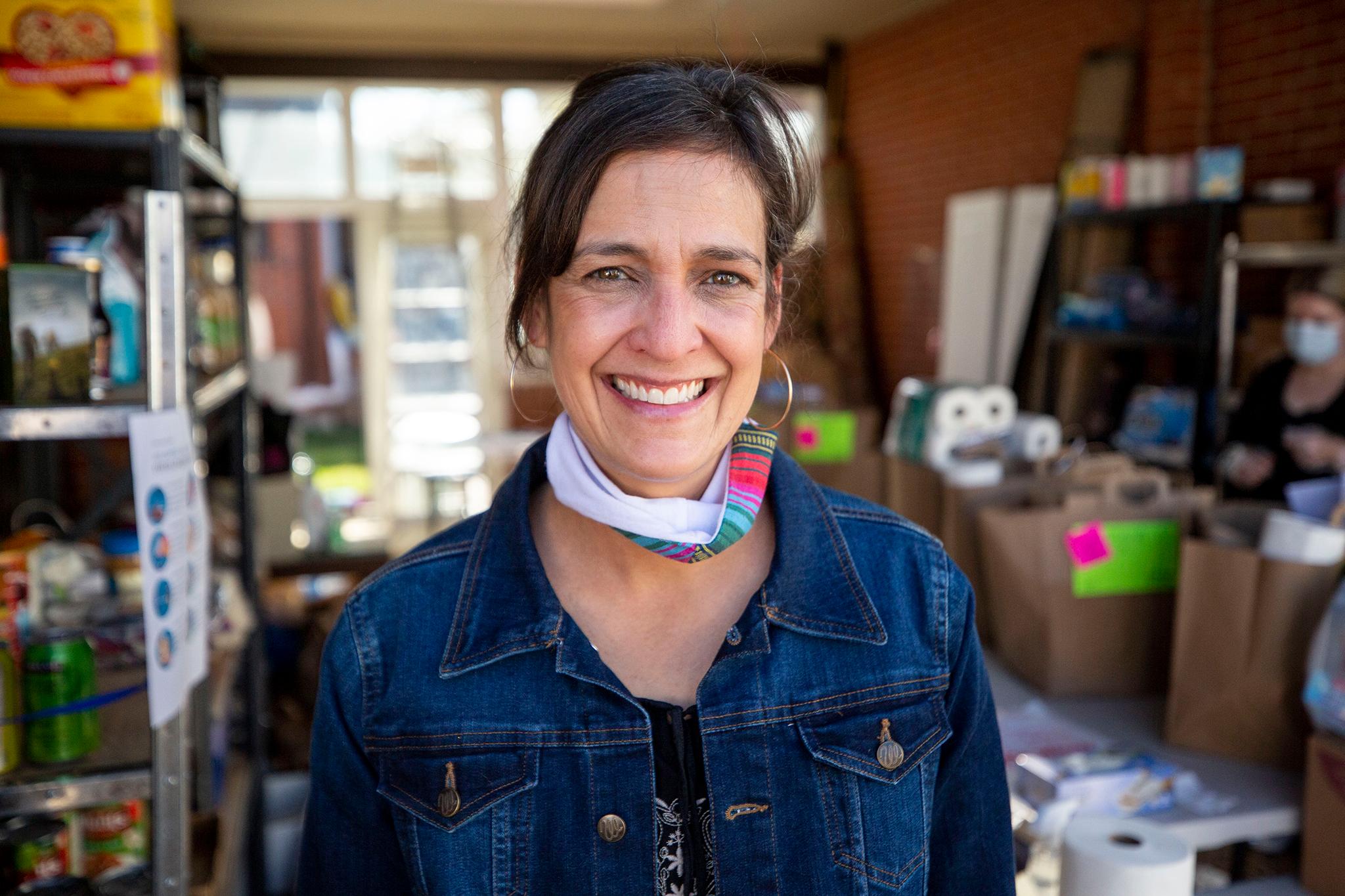
Lasnier said Ruby's will continue operating as an emergency resource as long as there's a need. And then, hopefully, it will return to its original design: an international marketplace where entrepreneurial refugees and immigrants from all over the world can sell their crafts -- jewelry, artisan soaps, paintings, pottery, Brazilian cheese bread, salsas, and more. She also envisions Ruby's as an incubator, using the venue as a gathering space to offer mentoring and classes to help her purveyors launch their own businesses.
For now, though, her focus is the immediate needs of her artisans. "Food -- it's just a bridge between cultures," Lasnier said. "Getting a package, even if you're not talking to the person who drops it off, you know you're loved, and we're wanting them to be taken care of."
Want to help? Ruby's Market accepts donations of nonperishable foods, toiletries, and cleaning supplies; find a list of needed items here. Financial contributions and grocery store gift cards are also welcome. Text or call Lasnier at 303-881-8876 to schedule a drop-off.

